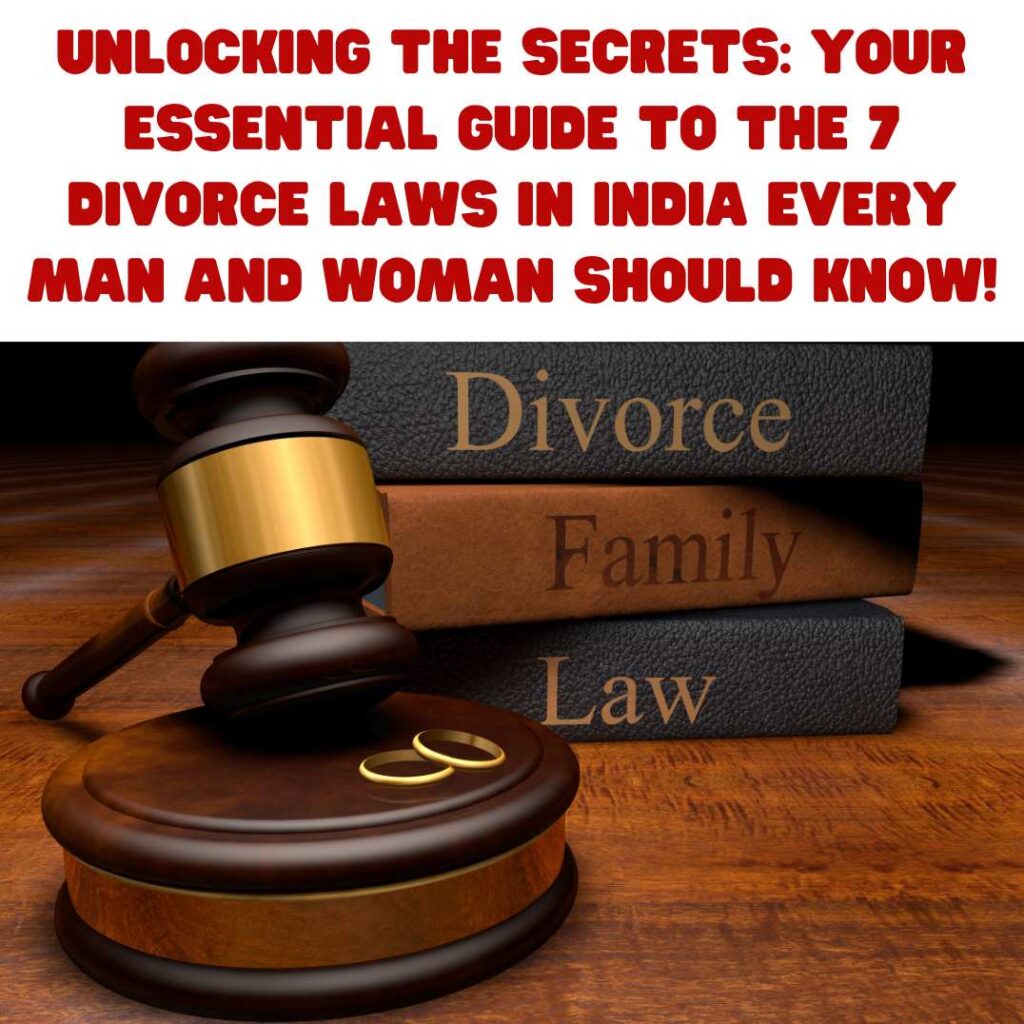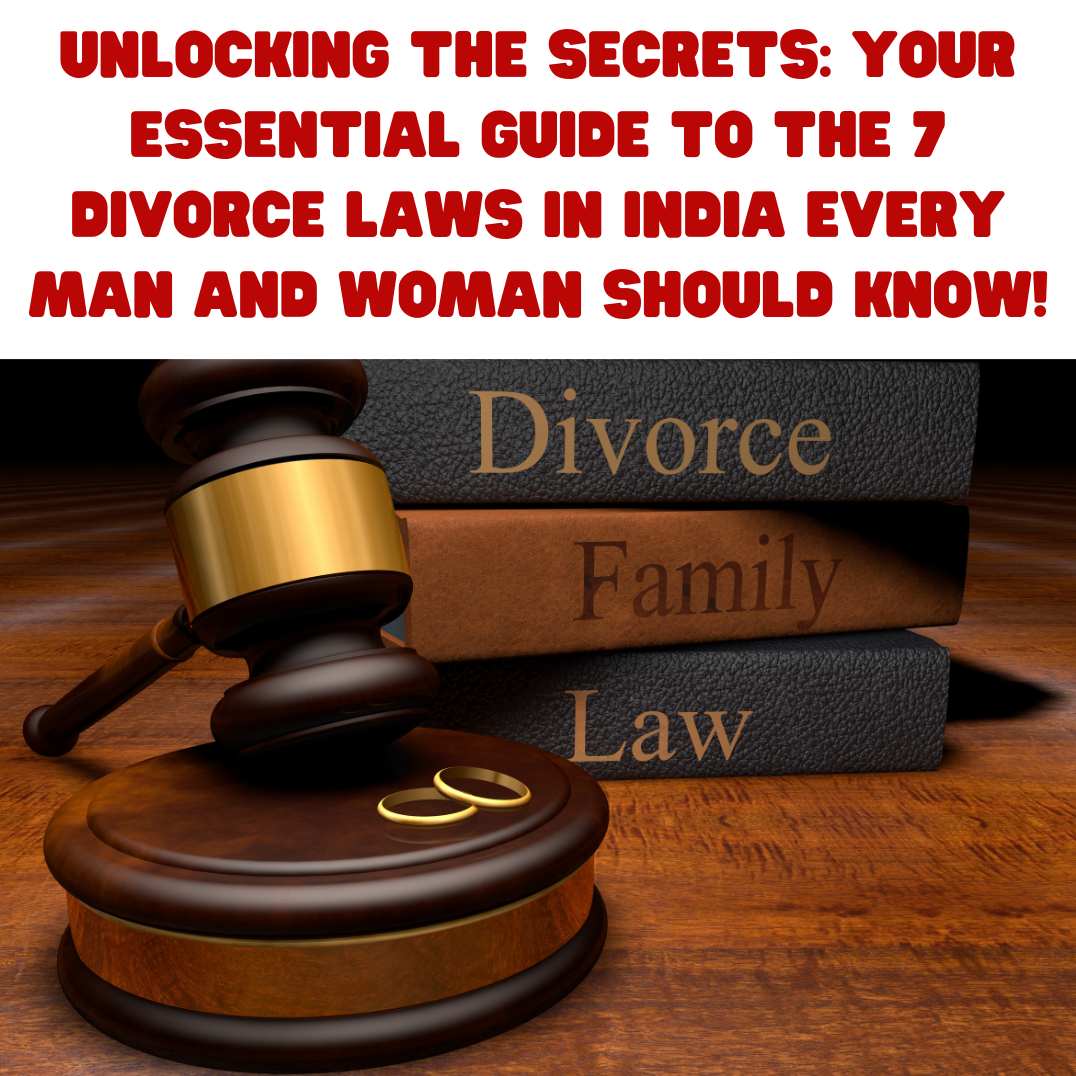Introduction:
Embarking on the journey of divorce is a significant life event that involves intricate legal processes. It’s imperative for both men and women contemplating or undergoing this challenging phase to comprehend the fundamental divorce laws in India. This comprehensive guide aims to shed light on seven pivotal divorce laws constituting the legal framework for individuals navigating the dissolution of marriage.
1. The Hindu Marriage Act, 1955:
– Specifically tailored for Hindu couples, this act governs the procedures and grounds for divorce. Valid grounds include cruelty, adultery, desertion, conversion to another religion, mental disorder, and communicable diseases.
2. Special Marriage Act, 1954:
– Couples from diverse religious backgrounds or those opting for a civil marriage fall under the purview of this act. It provides provisions for divorce based on grounds such as adultery, cruelty, desertion, mental illness, and more.
3. Dissolution of Muslim Marriages Act, 1939:
– For couples married under Islamic law, this act delineates the circumstances under which a woman can seek divorce, including cruelty, desertion, impotence, and more.
4. Indian Divorce Act, 1869:

– Christians seeking divorce adhere to this act, which recognizes adultery, conversion, cruelty, and desertion as grounds for the dissolution of marriage.
5. Protection of Women from Domestic Violence Act, 2005:
– Although not divorce-specific, this act offers protection to women facing domestic violence, providing legal remedies such as protection orders, residence orders, and maintenance.
6. Section 125 of the Code of Criminal Procedure, 1973:
– Irrespective of religion, this section enables both men and women to claim maintenance from their spouse after divorce.
7. The Guardians and Wards Act, 1890:
– In cases involving the custody of children, this act outlines the criteria the court considers for granting custody, prioritizing the child’s welfare.
Conclusion:
Navigating the legal terrain of divorce in India can be overwhelming, but grasping these seven fundamental laws is a vital initial step. It is advisable to seek guidance from legal professionals specializing in family law to receive personalized advice based on your unique situation. Remember, divorce is not merely a legal process but an emotional journey as well, and seeking support from both legal and emotional perspectives can significantly ease the challenges along the way.



















What do you think?
It is nice to know your opinion. Leave a comment.